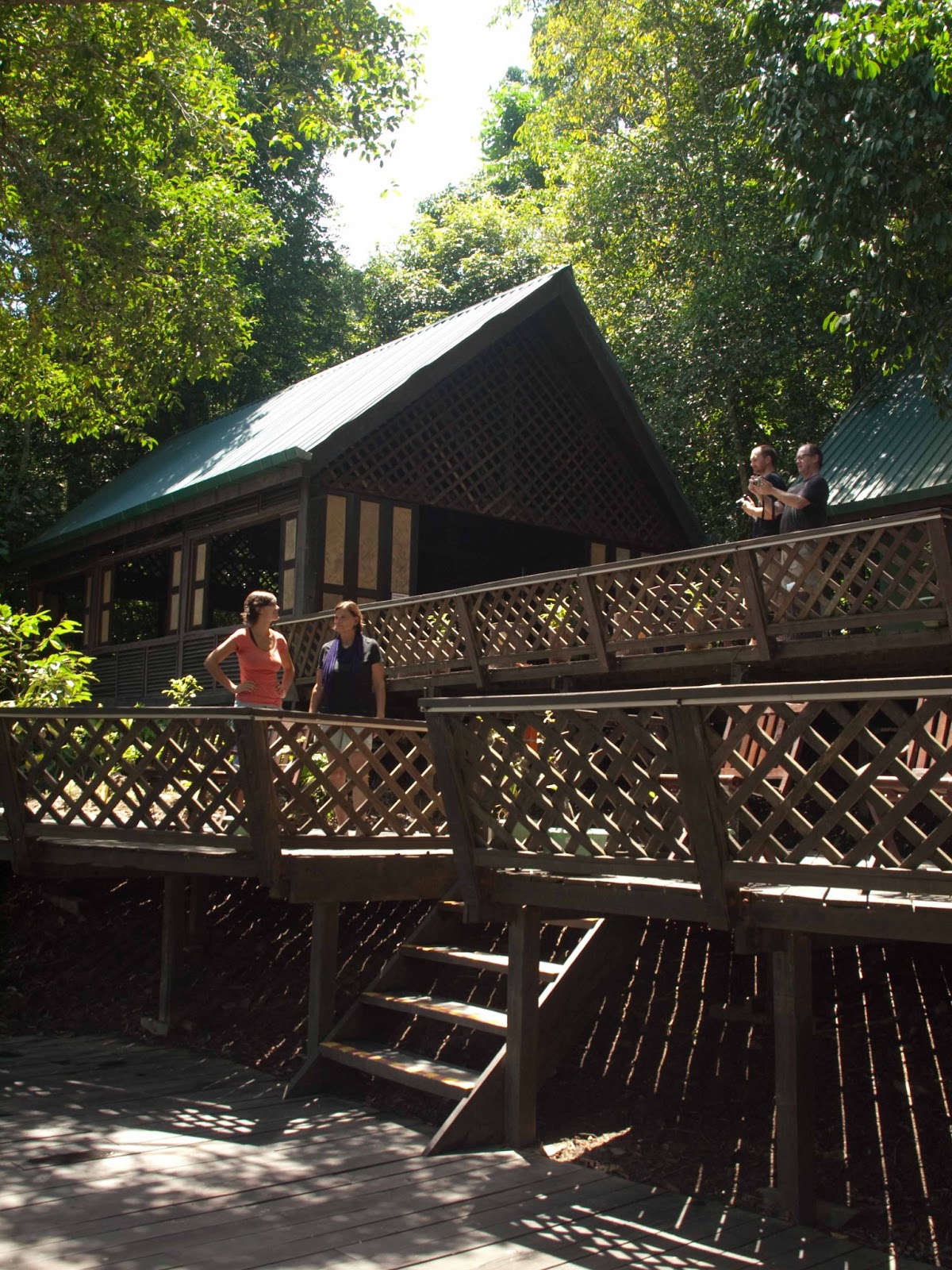For
millennia the indigenous ”Sungai” people of the Lower Kinabatangan had lived
off the rainforest for food, medicine, household commodities and products of
trade. When the British arrived they
named the people “Orang Sungai” meaning “People of the River”, and this is the
name by which they now call themselves. Islam
came to Borneo around 16th century and so the community here is Muslim. The
world of the Orang Sungai changed dramatically in the 1960's , with the advent
of mechanised extraction of the forest’s timber resources. Even though they
were forced into the modern world and away from their ancestral activities,
they have kept some of their culture intact. The community likes to share some of this
culture with you and you are likely to see a demonstration of their dancing and
martial arts which is lively and colourful. Traditional musical instruments
accompany the dancing (tarian kebudayaan) and the
martial arts (silat) segments and you may be given the chance to try out your
dancing and musical skills, on the gongs (agup tungal), kuling tangan, drum
(tambur), bandil and the xylophone (gabang).
The
people are very friendly and eager to meet you and improve their language
skills but please be aware that there are certain behaviours that can cause
offence – women need to keep their shoulders and knees covered at all times and
only use your right hand for eating.
Women must also sit in certain ways on the floor when in the company of
men; please ask your homestay hostess to
guide you. Alcohol is totally forbidden.

















